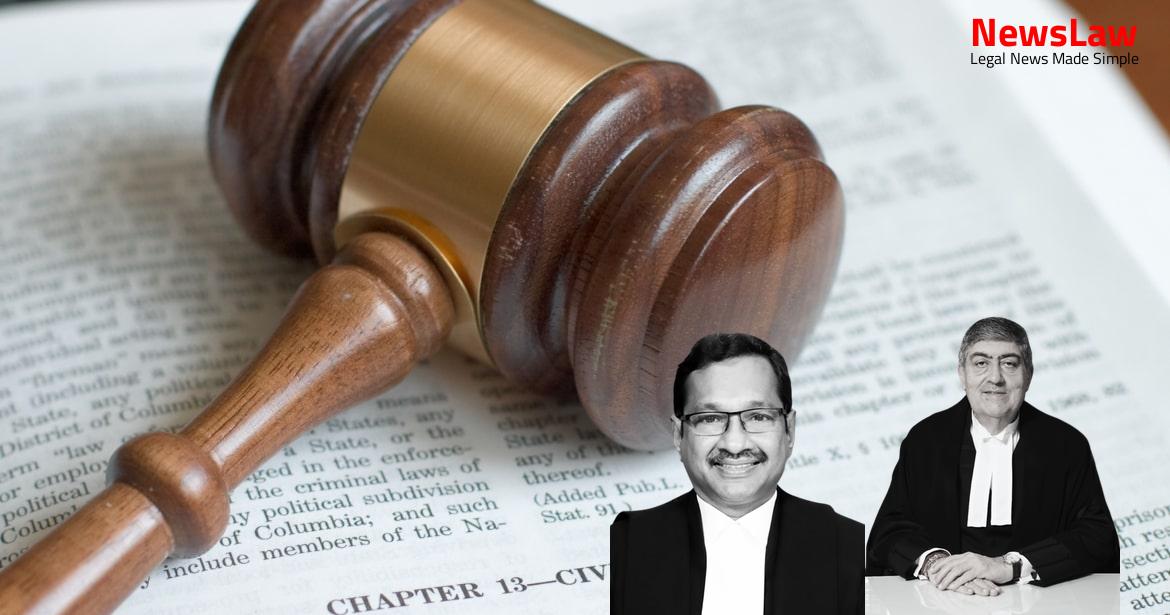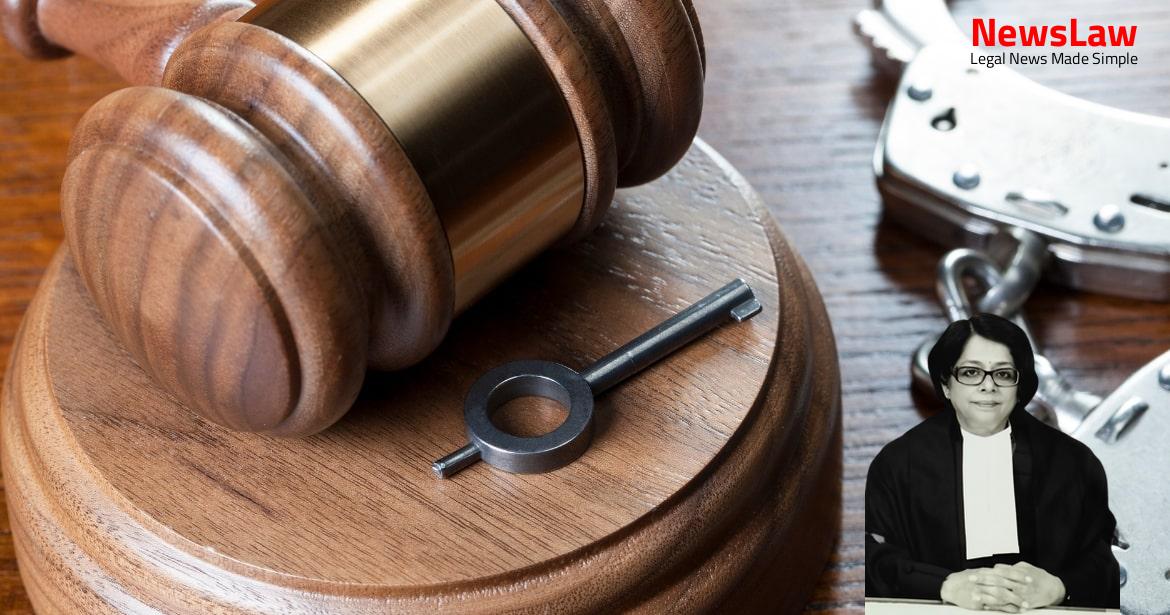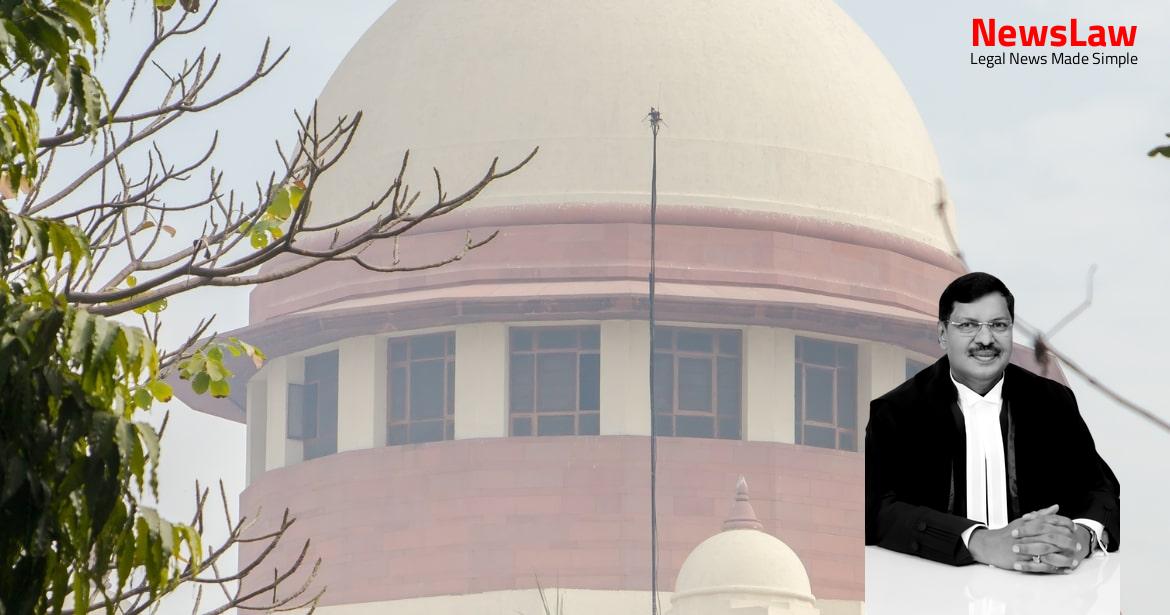Explore the intricate legal analysis conducted by the court regarding handwriting identification in disciplinary proceedings. This case sheds light on the importance of evidence evaluation and the permissible methods for establishing proof. Understanding the legal framework under Sections 45, 47, and 73 of the Evidence Act is vital for comprehending the court’s decision. Let’s dive into the complexities of this legal scenario.
Facts
- Respondent was employed with the appellant-Bank as a clerk-cum-cashier from 9.1981.
- Respondent was suspended on 5.11.1994 for various charges including fraudulent withdrawal from a joint account and insubordination.
- Charges included forging signatures, wilful insubordination, causing inconvenience to bank customers, and riotous behavior towards branch manager.
- Respondent denied the allegations in response to the chargesheet and was ultimately dismissed from service on 11.5.1996.
- Appellant-Bank found respondent guilty of breach of duty as a custodian of public money and manipulation of documents.
- Inquiry officer found all charges proved against the respondent, leading to a show cause notice for dismissal in 1996.
- Respondent’s appeal was rejected by the appellate authority in September 1996.
- 1.6
- 2013
- 21.2
- -1
- 2.31
- 2018
- 31.5
- 3.45
- 1
- 2
- 3
- 6
- 7
- 4
- 5
- 4.56
- 5.67
- -1
- -1
- 6.78
- 30.1
- 2003
- -1
- 5.3
- 2019
- -1
- -1
- -1
- 7.89
- 8.9
- -1
Also Read: Supreme Court Judgment on Single Till Mechanism for HRAB Calculation: A Comprehensive Analysis
Arguments
- Charges 4 & 5 were not proved in the disciplinary proceedings.
- The respondent took advantage of the complainant being his sister-in-law.
- The High Court was wrong in applying criminal standards of proof to disciplinary proceedings.
- There was sufficient evidence of fraud and forgery by the respondent.
- The complainant’s testimony was clear, consistent, and unchallenged.
- Remaining charges of insubordination, disobeying orders, and forging documents were also proven.
- The documents themselves were enough to justify dismissal from service.
Analysis
- The High Court erred in directing the matter to be remitted to the Industrial Tribunal for opinion of a handwriting expert.
- The comparison of signatures by the Inquiry Officer was based on evidence and permissible under Section 73 of the Evidence Act.
- The court can form its own opinion by comparing admitted and disputed writings, irrespective of a handwriting expert’s opinion.
- Sections 45, 47, and 73 of the Evidence Act deal with handwriting identification.
- The evidence against the respondent, including testimony and bank records, was deemed sufficient by the court.
- The standard of proof in departmental proceedings is lower than in criminal cases.
- The High Court’s insistence on a handwriting expert for specific charges was deemed incorrect and not supported by the record.
- The conduct of the respondent, as shown in bank records and charges, supported the findings against him.
- Court has power to compare writings and decide the matter even in the absence of expert evidence.
- Legal limitations exist when scrutinizing a Tribunal’s award via Article 226 of the Constitution of India.
- Reference to the judgment in GE Power India Ltd. v. A. Aziz.
Also Read: Selection and Appointment of Judicial Officers in Himachal Pradesh
Decision
- The High Court judgment dated 31.5.2018 is set aside.
- The challenge to the award of the Industrial Tribunal dated 21.2.2013 is dismissed.
- The appeal is allowed.
- Each party will bear its own costs.
Case Title: INDIAN OVERSEAS BANK Vs. OM PRAKASH LAL SRIVSATAVA (2022 INSC 69)
Case Number: C.A. No.-000267-000267 / 2022



